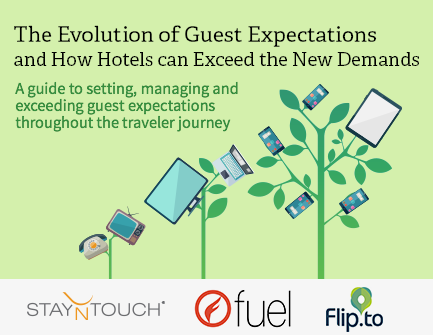In the 1980s there was a big focus on customer satisfaction. The thinking at the time was that a satisfied customer would be a loyal customer. R.L. Oliver’s Expectations Confirmation Theory held that customer satisfaction could be defined by measuring the gap between the customer’s expectations and his or her perception of whether those expectations had been met. If the customer’s expectations were met, then the thinking was that the customer would most likely return to the brand for the goods and services in the future.
However, in the 1990s, researchers were discovering that satisfied customers were nearly as likely to purchase elsewhere as unsatisfied customers. A perfect example of this effect is hotel loyalty programs. Many people are members of multiple loyalty programs, for the sole reason of receiving additional perks and discounts. So I can be happy with the services of multiple brands – but that doesn’t mean I love them. In fact, simply meeting expectations falls short in the competition for future business because it doesn’t hold up to the promise of discounts and a better price elsewhere.
It is a different concept altogether because it acknowledges that emotion is a key driver to the customer experience. Fully engaged customers feel an emotional investment in the brand in which they are engaged. Remember that loyalty which is actually an emotional state despite the fact that we tend to measure it in transactional outcomes.
The reason we are passionate on this blog about the transformative effects of mobile property management systems in a hotel is that mobility elevates engagement and communications by virtue of the fact that it takes the brand to the guest on the guest’s terms. By doing so you make the service experience much more about the guest. You create convenience for the guest and the guest can actually spend more time interacting with your brand because they can do it via mobile wherever they are before, during and after the stay. Guests are certainly engaged with their phones, so a mobile strategy allows the hotel to benefit from that engagement “halo.”
Watch the Webinar
The mobile PMS, likewise, is a power-up for your guest engagement efforts. The mere act of moving to the guest wherever they are, then checking in, checking out, ordering housekeeping or some other add-on on the spot through a mobile PMS on a tablet raises the service level you are giving and allows the staff member to interact on a personal level with the guest without requiring the guest to wait in some long line.
The convenience and service level of a mobile-powered hotel is a gift that goes beyond typical expectations for a hotel experience. It delivers tremendous perceived value to the guest. So, yes, you will now create guest satisfaction but you are also creating an emotionally positive experience beyond that which was expected. And that is what will win you the return business.












